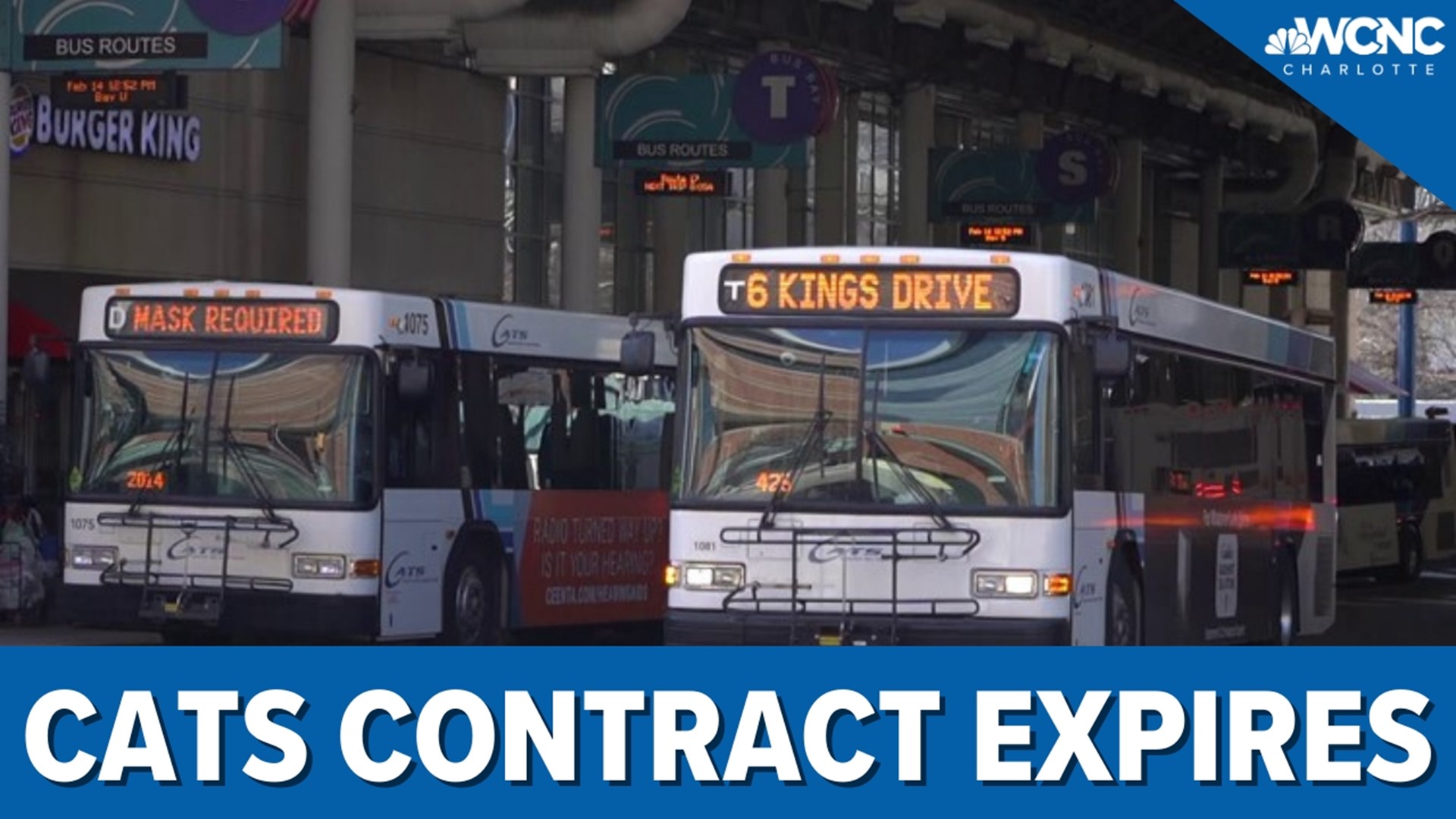CHARLOTTE, N.C. — The labor contract extended for CATS bus drivers expired on Sunday, several sources told WCNC Charlotte.
A strike remains on the table while negotiations for a new contract continue in “good faith” between the union and the management company. Keep in mind, CATS is not privy to contract discussions because of state law.
Thousands of people who count on the bus for reliable transportation could be impacted if bus drivers do decide to walk off the job.
“When I moved to Charlotte people told me that I needed to buy a car but it’s really expensive to buy a car and the insurance and monthly costs ... buses are way more convenient,” Gaurav Errum, a bus rider, said.
“I use it to go to the grocery store, to the doctor, and to church,” said Donnie Henderson, an east Charlotte resident.
Some riders say they are concerned.
“It’s going to be difficult for me to travel anywhere. And I really cannot afford Uber and Lyft. It’s expensive,” Errum said.
He said he is also worried about the unforeseen costs a strike could bring his co-workers.
“Not just fuel-wise ... they are going to waste a lot of money on that,” Errum said. “The parking charges are also just too much here in Uptown. We need a lot of buses here because a lot of my colleagues travel by bus.”
After months of failed labor contract negotiations, the SMART union which represents the bus drivers, and RAPT DEV, the management company have not come to an agreement.
The union authorized a strike vote last weekend and sources say the vote was certified a few days later. It's important to note the vote does not mean a strike will happen.
An extension of the old contract had an expiration date of Jan. 15.
Meanwhile, CATS released a contingency plan to continue operations for emergencies like a strike but it would mean limited services.
“In any strike scenario, we would fully expect pretty serious negative impact to daily bus service,” a CATS spokesperson said during a recent TSAC meeting.
Although the agency is not a party in the negotiations it encourages them to reach a mutually beneficial agreement.
Despite some of the challenges riders may face if there is a strike some are picking sides.
“You have to think of the operators and their families because it’s going to affect them,” Henderson said. “To operators, stick to what you want, what is necessary, and don’t give in.”
Sources say there is a 30-day cooling-off period until Feb. 11, and negotiations continue between both parties.

